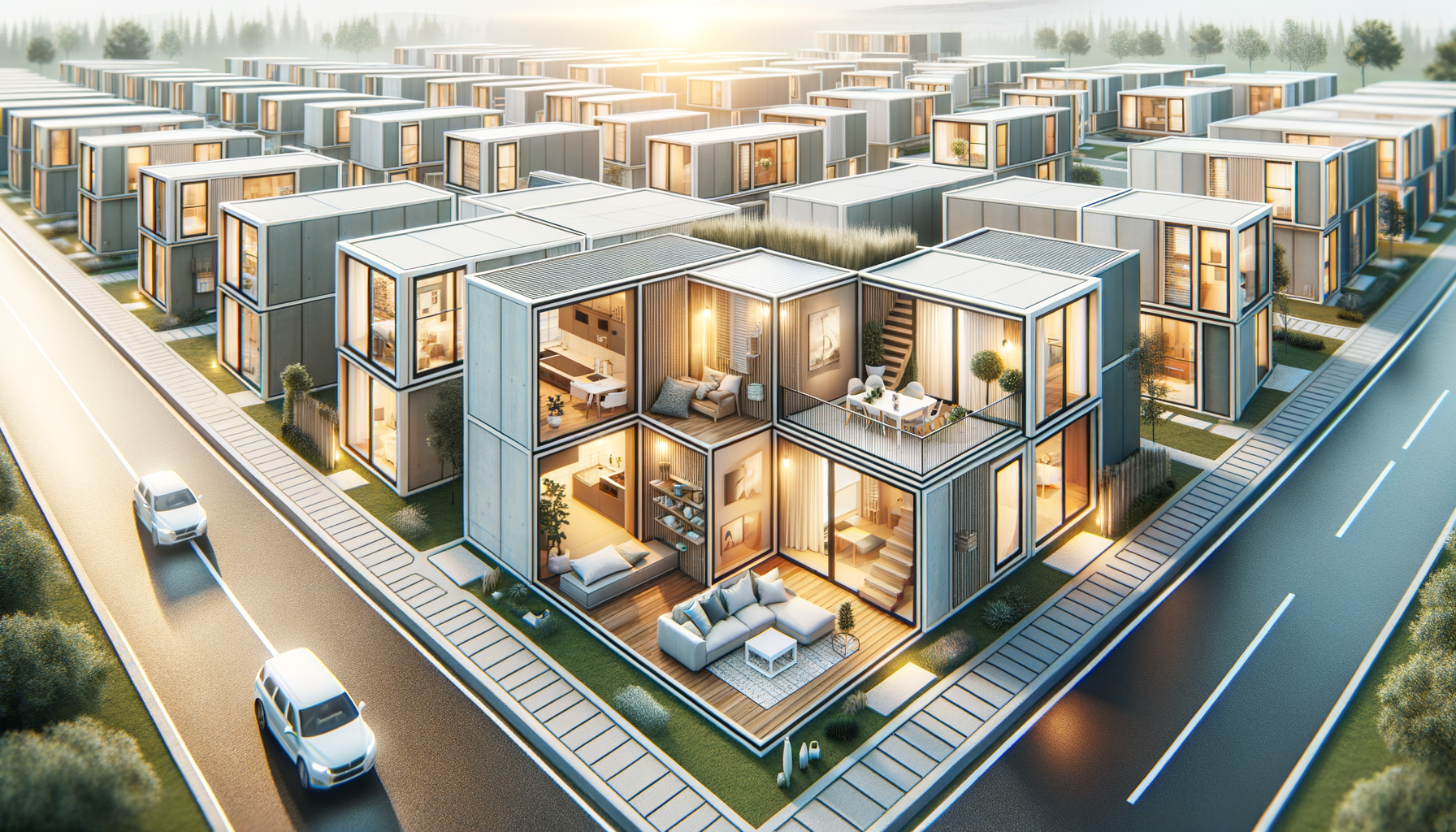
Explore Modular Homes Designed for Flexible and Efficient Modern Living
Understanding Modular Homes
Modular homes, often referred to as prefab homes, are built in sections or modules in a factory setting and then transported to the site for assembly. This method of construction offers several advantages over traditional home building. Firstly, the controlled environment of a factory ensures that the modules are built with precision and consistency, minimizing the chances of weather-related delays or damage. Additionally, modular homes are constructed using the same high-quality materials as conventional homes, ensuring durability and longevity.
A key benefit of modular homes is their flexibility in design. Homeowners can choose from a variety of floor plans and customize features to suit their personal preferences and lifestyle needs. This adaptability makes modular homes an attractive option for those looking to build a home that reflects their unique style without the extended timelines often associated with custom-built homes.
Moreover, modular homes are typically more energy-efficient than traditional homes. The precision in construction allows for tighter seals and better insulation, which can lead to lower energy costs. As more people look for sustainable living options, the eco-friendly nature of modular homes is becoming increasingly appealing.
Exploring Modular Home Floor Plans
One of the most appealing aspects of modular homes is the variety of floor plans available. Whether you’re seeking a compact one-bedroom model or a spacious four-bedroom layout, modular homes offer designs to accommodate diverse needs. The customization options allow homeowners to tailor the layout to their specific requirements, making it possible to create a home that fits their lifestyle perfectly.
For instance, a family might opt for a three-bedroom plan with an open-concept living area, providing ample space for gatherings and daily activities. Alternatively, a couple looking for a simpler lifestyle might choose a one-bedroom design with an efficient layout that maximizes the use of space. The ability to modify these plans further enhances the appeal of modular homes, as it allows for adjustments in room sizes, the addition of features like home offices or extra bathrooms, and even the inclusion of energy-efficient systems.
Modular home manufacturers often provide virtual tours and 3D models of their floor plans, enabling potential homeowners to visualize the space and make informed decisions. This level of transparency and flexibility is a significant advantage for those considering modular homes, as it ensures that the final product aligns with their expectations and needs.
The Cost of Modular Homes
When it comes to cost, modular homes offer a competitive edge over traditional home construction. The factory-based construction process allows for economies of scale, as materials can be purchased in bulk and labor costs are more predictable. As a result, the overall cost of building a modular home can be significantly lower than that of a site-built home.
The cost of a modular home varies depending on several factors, including the size of the home, the complexity of the design, and the level of customization. On average, the price per square foot for a modular home ranges from $50 to $100, not including land and additional site preparation costs. This is often less expensive than the $100 to $200 per square foot cost of a traditional home.
It’s important to note that while the initial cost of a modular home may be lower, additional expenses such as land purchase, foundation work, and utility connections should be considered. However, the potential savings in energy costs and the reduced time to completion can offset these expenses in the long term, making modular homes a financially sound choice for many prospective homeowners.
Comparing Modular Homes to Traditional Homes
Modular homes and traditional homes each have their own set of advantages and drawbacks. One of the primary distinctions is the construction process. Modular homes are built in a controlled environment, which reduces the likelihood of weather-related delays and material damage. This can result in a quicker completion time, often within a few months, compared to the year or more it might take to build a traditional home.
In terms of quality, modular homes are built to meet or exceed local building codes, just like traditional homes. The factory setting ensures consistent quality control, which can lead to fewer defects and a more reliable finished product. Additionally, modular homes are designed to be energy-efficient, which can result in lower utility bills over time.
However, one potential limitation of modular homes is the perception of limited customization. While modern modular homes offer a wide range of design options, some people may still associate them with the cookie-cutter designs of the past. It’s essential for prospective buyers to explore the available options and work with manufacturers to create a home that truly reflects their personal style and needs.
Overall, modular homes present a viable alternative to traditional construction, offering benefits in terms of cost, efficiency, and sustainability. As the demand for affordable and eco-friendly housing continues to grow, modular homes are likely to become an increasingly popular choice.
Conclusion: The Future of Modular Living
The future of modular homes is bright as they continue to offer a compelling blend of affordability, efficiency, and customization. As more people seek sustainable and cost-effective housing solutions, modular homes provide a practical alternative to traditional construction methods. Their ability to adapt to various lifestyle needs and environmental considerations makes them an attractive option for a wide range of homeowners.
For those considering building a new home, modular homes represent a forward-thinking choice that combines the latest in construction technology with the flexibility to create a personalized living space. As the housing market evolves, modular homes are poised to play a significant role in shaping the future of residential living.